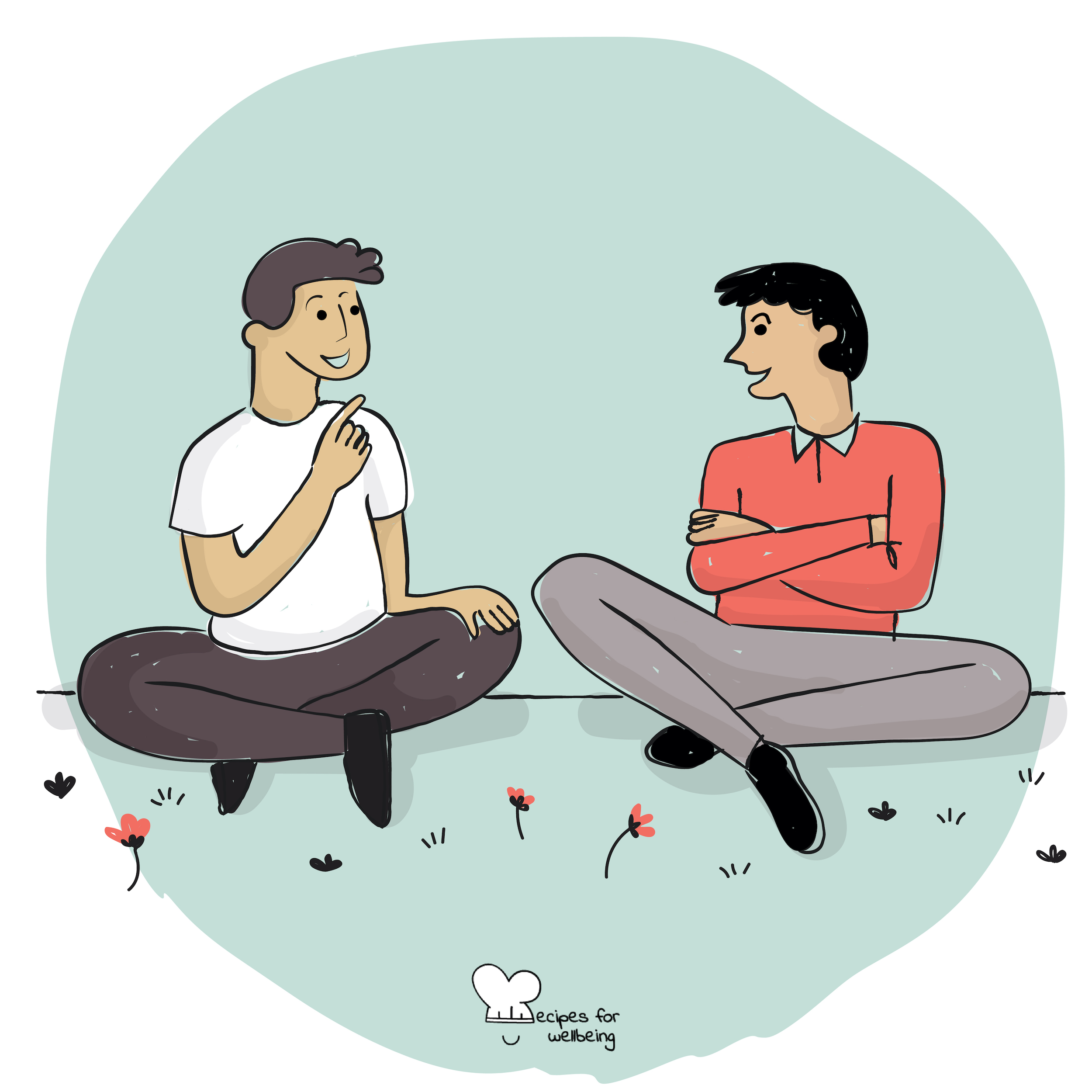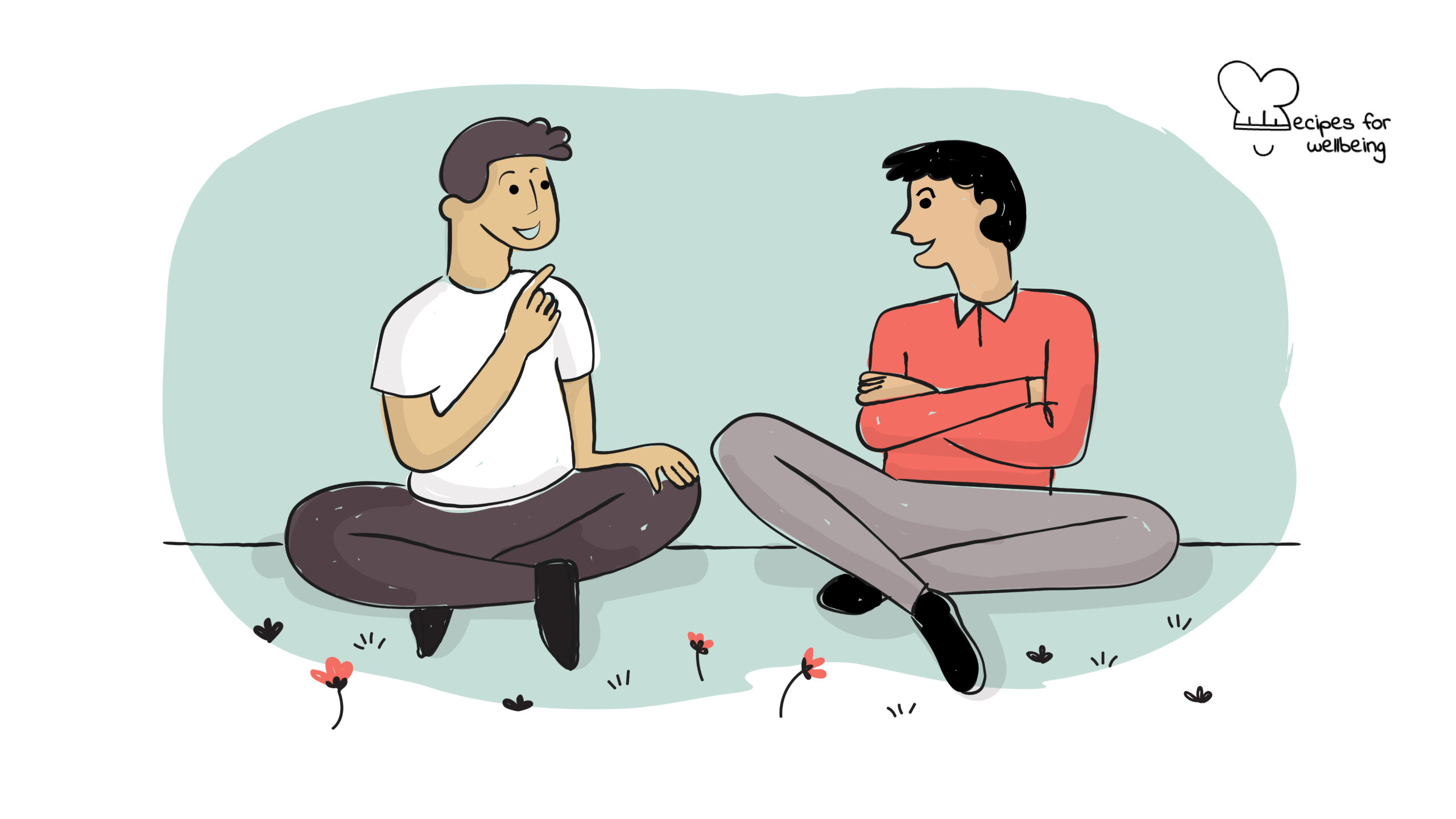
36 Qs for increasing closeness
Vulnerability is the birthplace of connection and the path to the feeling of worthiness. If it doesn’t feel vulnerable, the sharing is probably not constructive. ―Brené Brown
👥 Serves: 11-25 people, 2-10 people
🎚 Difficulty: Medium
⏳ Total time: 31-60 minutes
🥣 Ingredients: A quiet place with no distractions, 1 partner
🤓 Wholebeing Domains: Community, Radical Care
💪 Wholebeing Skills: Authenticity, Closeness, Compassion, Holding space, Hosting conversations, Listening, Openness, Relating to Others, Trust

36 Qs for increasing closeness
📝 Description
A deeply connecting practice to increase closeness with others.
Getting to know your co-workers and changemaker colleagues can be difficult nowadays. You might tend to focus on “getting things done” without realising that the quality of your connections play a major role in determining the success of your outer action. By increasing the level of closeness between your changemaker peers and yourself, you increase the sense of openness and mutual trust, and create a supportive and resilient support network around you.
The following practice invites you to deepen the connection and bond with those around you, one person at a time. The instructions are adapted from: Arthur Aron, Ph.D., Stony Brook University. Evidence that it works can be found here: Aron, A., Melinat, E., Aron, E. N., Vallone, R. D., & Bator, R. J. (1997). The experimental generation of interpersonal closeness: A procedure and some preliminary findings. Personality and Social Psychology Bulletin, 23(4), 363-377. You can access this practice at the Greater Good Science Center website.
Why you should try it: “Building close relationships in adulthood can be challenging. Many social situations call for polite small talk, not heart-to-heart conversations, making it difficult to really connect deeply with people. One way to overcome these barriers to closeness is by engaging in ‘reciprocal self-disclosure’—that is, to reveal increasingly personal information about yourself to another person, as they do the same to you. Research suggests that spending just 45 minutes engaging in self-disclosure with a stranger can dramatically increase feelings of closeness between you. In some cases, these feelings of closeness persist over time and form the basis of a new relationship.”
Why it works: “To develop closeness, we need to be willing to open up. But opening up isn’t always easy—we might fear coming on too strong or embarrassing ourselves. The 36 Questions encourage us to open up at the same time and at a similar pace as our partner, reducing the likelihood that the sharing will feel one-sided. It offers space for our partner to respond positively to our self-disclosure—with understanding, validation, and care—in a way that can also enhance closeness. This mirrors the gradual getting-to-know-you process that relationships typically undergo, only at a more accelerated pace. The feelings of closeness generated can, in turn, help us build lasting relationships that increase our overall happiness.”
👣 Steps
Step 1 – Choosing your partner
Identify someone with whom you would like to become closer. Before trying it, make sure both you and your partner are comfortable with sharing personal thoughts and feelings with each other. Then find a time when you have at least 45 minutes free and are able to meet in person.
Step 2 – Questions – Set I (15’)
For 15 minutes, take turns asking one another the questions below. Each person should answer each question, but in an alternating order, so that a different person goes first each time.
- Given the choice of anyone in the world, whom would you want as a dinner guest?
- Would you like to be famous? In what way?
- Before making a telephone call, do you ever rehearse what you are going to say? Why?
- What would constitute a “perfect” day for you?
- When did you last sing to yourself? To someone else?
- If you were able to live to the age of 90 and retain either the mind or body of a 30-year-old for the last 60 years of your life, which would you want?
- Do you have a secret hunch about how you will die?
- Name three things you and your partner appear to have in common.
- For what in your life do you feel most grateful?
- If you could change anything about the way you were raised, what would it be?
- Take four minutes and tell your partner your life story in as much detail as possible.
- If you could wake up tomorrow having gained any one quality or ability, what would it be?
Step 3 – Questions – Set II (15’)
After 15 minutes, move on to Set II, even if you haven’t finished the Set I questions. Then spend 15 minutes on Set II, following the same system.
- If a crystal ball could tell you the truth about yourself, your life, the future, or anything else, what would you want to know?
- Is there something that you’ve dreamed of doing for a long time? Why haven’t you done it?
- What is the greatest accomplishment of your life?
- What do you value most in a friendship?
- What is your most treasured memory?
- What is your most terrible memory?
- If you knew that in one year you would die suddenly, would you change anything about the way you are now living? Why?
- What does friendship mean to you?
- What roles do love and affection play in your life?
- Alternate sharing something you consider a positive characteristic of your partner. Share a total of five items.
- How close and warm is your family? Do you feel your childhood was happier than most other people’s?
- How do you feel about your relationship with your mother?
Step 4 – Questions – Set III (15’)
After 15 minutes on Set II, spend 15 minutes on Set III.
(Note: Each set of questions is designed to be more proving than the previous one. the 15-minute periods ensure that you spend an equivalent amount of time at each level of self-disclosure.)
- Make three true “we” statements each. For instance, “We are both in this room feeling…”
- Complete this sentence: “I wish I had someone with whom I could share…”
- If you were going to become a close friend with your partner, please share what would be important for them to know.
- Tell your partner what you like about them; be very honest this time, saying things that you might not say to someone you’ve just met.
- Share with your partner an embarrassing moment in your life.
- When did you last cry in front of another person? By yourself?
- Tell your partner something that you like about them [already].
- What, if anything, is too serious to be joked about?
- If you were to die this evening with no opportunity to communicate with anyone, what would you most regret not having told someone? Why haven’t you told them yet?
- Your house, containing everything you own, catches fire. After saving your loved ones and pets, you have time to safely make a final dash to save any one item. What would it be? Why?
- Of all the people in your family, whose death would you find most disturbing? Why?
- Share a personal problem and ask your partner’s advice on how they might handle it. Also, ask them to reflect back to you how you seem to be feeling about the problem you have chosen.

